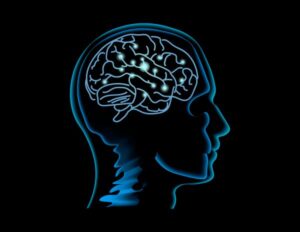Building the first AI-enabled workforce: Charles Boutens, Founder, uman.ai
- 7 Min Read
In this installment of our Tech Founders series, Charles Boutens, Founder, uman.ai, tells HRD Connect how an AI-enabled workforce will align upskilling with organisational goals and empower employees more than ever before.
- Author: Michael Hocking
- Date published: Aug 21, 2019
- Categories

What is the true potential of HR and how can technology help us to achieve it?
In this installment of our Tech Founders series, Charles Boutens, Founder, uman.ai, tells HRD Connect how an AI-enabled workforce will align upskilling with organisational goals and empower employees more than ever before.
What is uman.ai?
uman.ai is building the first AI-enabled workforce. We solve two main challenges for our clients: first, it makes capturing and sharing organisational knowledge extremely easy and available ‘in the flow of work’. Secondly it provides decision makers with real-time competence profiles. This combination tackles a lot of inefficiencies that exist in the workplace today. (e.g. chasing people to fill out their competency sheets, matching employees to internal projects based on skills, finding in house experts for though challenges, finding the relevant knowledge for a project at hand).
We focus heavily on integrating with existing systems, which makes our platform relatively ‘invisible’, except when you need it. This fits nicely in our strategy to be an AI-powered employee augmentation rather than simply to ‘assist on the side’.
In a nutshell, we offer employees content that colleagues have curated earlier. Using our AI powered skills engine, we can do this on the exact time & place in their workflows resulting in unparalleled relevance and knowledge engagement.
Why was it necessary to create uman.ai?
We’re seeing a vast focus on learning & development and ‘upskilling’. But that’s only scratching the surface. A lot of challenges that exist in organisations today are linked to competencies that have been straying too far from the organisational roadmap. Really pivotal skills that will help you stay ahead of the curve, to really dig a competitive moat and to engage employees in innovative and impactful projects are not learned in the current context. Postponing these efforts for short-term optimisations result in huge lay-offs and in (God-forbid-the-term) ‘reskilling’.
We truly believe that employees should always be learning, regardless of their current position, the current project or the current task at hand. And this behaviour cannot be enforced top-down. The engagement of mandatory trainings is extremely low and incredibly cost-inefficient. That’s why we saw a huge opportunity to leverage artificial intelligence to build realtime competence profiles that support employees in becoming better at what they find interesting and what competences they want to grow and excel at.
Why is HR technology crucial to the success of a business?
The solution we’re building can only be built with tools that exist only a few years, even months. The level of confidence that our competence profiling requires demands an extremely fine-grained competence ontology, much deeper than you would expect from, say a ‘LinkedIn page’ or a run-of-the-bill resumé. Moreover, we had to build a complete competence ontology that has over 30 dimensions per competence. Our algorithm can handle this level of complexity because we make the circle complete: we analyse and index learning resources with the same dataset that we use to associate competencies with employees. In today’s landscape, the HR manager can impossibly cope with the intricacies of both the latest & greatest in Digital Marketing and in IT Database Management. And integrating domain experts in this process is time-consuming and unscalable. That’s why AI augmentation is required. It’s not optional anymore.
How can an organization most effectively implement new HR technology?
Let’s make this really concrete shall we? HR Tech projects often have one of two approaches: top-down or bottom-up (grass-root). There’s no silver bullet and it’s always a combination of both. In contrast with a B2C solution, corporate software requires both user engagement in the field and a mandate to operate from senior management.
We manage every implementation just like you would launch any other commercial product: start out with a small team of early adopters that are eager to give feedback, that are willing to iterate on the implementation and are involved. When you encounter obstacles in this early stage you can identify and tackle them quite easily. Additionally you build up a reputation that the product is open for feedback and that it takes into account any remarks or concerns users have. This is a ‘psychological agreement’ between the user and the product that’s not easily broken and that results in ambassadorship towards new users. These ambassadors are crucial to build credibility with employees that are more reluctant to try out new technology. Train the trainer 2.0 if you will.
This early stage of the project is precious, we manage it with great care and we over communicate on the status and why we’re doing what we do. This is also the reason why we work in two-week sprints that ensure a swift delivery of expectations.
Complementary to this fast-iterative approach we also include a series of workshops. Depending on the type of implementation we offer a combination of these three, each serving a different purpose:
- Onboarding workshop:
- This provides our users with a personal introduction to our platform and why the company believes this may solve a few challenges that exist today. We often encounter ‘latent’ users that have made peace with ‘the way things are run around here’. We use these workshops to provide insight in the potential of doing things differently. Especially in our business, competence management, this holds especially true because we overhaul quite a few, already established, employee interactions.
- Design thinking workshop
- We’re always on the lookout for organisational pains that are top-of-mind and originate from the ‘boots on the ground’. That’s why design thinking methodologies are incredibly helpful to guide our audience through ‘‘building the right thing’ all the way to ‘building the thing right’. Ultimately, we end up with a selection of organisational pains and a set of solutions that are either already in the product (proving the value) or as a direct input for our future roadmap. We see that this approach works wonders and gives valuable insight in how teams operate today and how teams find creative solutions to incorporate the uman.ai solution in their daily lives.
- User validation workshop
- When ideas and inspiration from the earlier workshops come to fruition, we don’t launch anything without testing it with users first. Their validation makes sure that we incorporate their feedback and increases the adoption of the changes.
What do you think is the biggest challenge affecting organisations today?
Lifelong employability. If an organisation is serious about the sustainability of its workforce and the resilience against disruptive technology, this should be the #1 priority. Almost every other HR challenge stems from this ambition: talent mobility, learning & development, talent engagement, retention and competitive differentiation.
Which emerging technologies do you think will transform HR in the future?
It’s clear that artificial intelligence will wreak havoc in the HR scene for those that come unprepared. This isn’t a bad thing however, vasts amount of work that can be automated will be automated, freeing up time to foster strategic decision making, establishing deeply personal connection with employees and candidates, coaching and managing personal growth tracks, etc. These are all functions that AI will never be able to replace without hurting credibility.
Disruptive use cases can already be found in the most transactional parts of HR such as payroll, planning, benefits, planning, etc. Now it’s time we finally solve competency management. For good.







